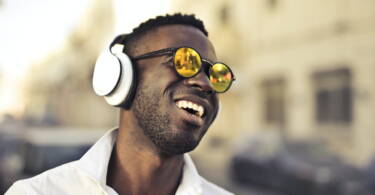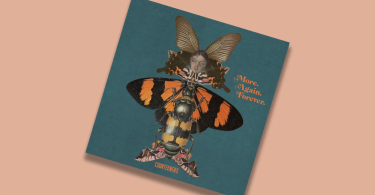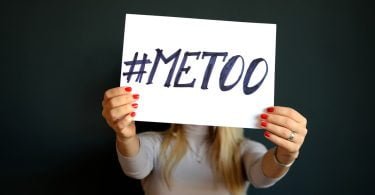It’s a familiar scene. You’re squeezed as near to the front as is humanly possible, ready to catch a glimpse of the particular band/artist/DJ you’ve come to see. Perhaps a band you’ve waited for some time to see perform again, a band worth the trouble of ramming yourself into the nearest person’s armpit, when all of a sudden a sea of screens eclipses your entire view.
Filiming banned at gigs
We’ve all been there, haven’t we? I am of course talking about the irritable routine of filming at gigs. In recent years this appears to have become an accepted part of the live experience for those who feel it necessary to document the gig live from their smartphone, camera or in some cases some form of satellite dish sized technology that they produce from their Mary Poppins like pocket. However, fear not those of you who, like me, tend to go to gigs to embrace the live experience and applaud your heroes fanatically as they let loose those first two chords of your favourite song. Those of us who pay good money to see these people live and not record it on a handheld device, to not miss what’s actually happening because you’ve suddenly turned into David Bailey and are getting annoyed about the amount of other people recording and ruining your shot. Then they only go and share it on every social network under the sun to people who couldn’t care less about where they are or who they’re watching, ultimately resulting in a pointless video that the hundreds of social network ‘friends’ or even them the filmer themselves will never, ever watch back. Well… You’re not alone in these thoughts.
In 2013 similar-minded folk over at Unsound Festival in Poland got involved with this ongoing debate. The festival, which took place in October, banned cameras and recording devices from being used as part of its Interference theme for that year. They even went as far as denying the media photo passes and urged festival goers to “resist the temptation to put cameras or mobile phones into action.”
According to the team at Unsound the idea behind the ban was to experiment and see if people can resist “contemporary habits as they pertain to instant documentation, ‘sharing’ and lived experience.” So in other words, this was an experiment to see if people could actually enjoy the festival, resist the urge to brag about where they were and pay homage to whoever they were watching by enjoying themselves, interacting, and experiencing live music as it should be – through their own eyes and not a small screen stuck as far into the air as possible.
Can we ban smartphones at gigs please? Taking a few photos is one thing but filming whole show/checking Facebook & Twitter is quite another.
— grania (@graniaobrien) May 4, 2015
It’s apparent that this is an issue that concerns many, and not just music lovers that attend gigs. During April 2013 the Yeah Yeah Yeahs left the audience a note asking them not to watch the performance through a screen at their New York gig in Webster Hall. Karen O even repeated the request mid-performance. Clearly this angers some artists just as much as it does audience members.
Roger Waters, former bassist and vocalist for Pink Floyd, couldn’t have put it any better.
“I would never turn on a cell phone at any musical event. It would seem to me to show a lack of respect to and care for fellow concert goers, or for that matter the artist. Apart from anything else, how could I possibly truly experience the thing I’d paid to see and hear if I was fiddling with an iPhone, filming or twittering or chatting or whatever?”
Not only this, but despite our advanced technology, is the quality of the recording ever going to compare to the live experience? Now, personally I’m not opposed to a quick snap of the stage for memories sake, and Karen O seems to take this view also, as she told fans to take a picture at one particular moment then keep their phones away for the “good of those around them.” Well said, Karen.
Prior to her glorious comeback shows in London last year, Kate Bush said:
“I have a request for all of you who are coming to the shows. We have purposefully chosen an intimate theatre setting rather than a large venue or stadium. It would mean a great deal to me if you would please refrain from taking photos or filming during the shows. I very much want to have contact with you as an audience, not with iPhones, iPads or cameras. I know it’s a lot to ask but it would allow us to all share in the experience together.”
It seems more and more artists are speaking out against the use of phones and other devices at gigs, including The Who’s frontman Roger Daltrey. “Looking at life through a screen and not being in the moment totally – if you’re doing that, you’re 50% there, right? It’s weird. I find it weird.”
Pulp’s Jarvis Cocker: “It seems stupid to have something happening in front of you and look at it on a screen that’s smaller than the size of a cigarette packet. If anything, it undermines the experience because it seemed like a really good moment, and now I can see it were crap. It’s like wedding videos.”
Johnny Marr: “To stand and just be looking at it through your phone is a completely wasted opportunity. You know, I don’t mean to be unkind but I think you should put your phone down because you’re just being a dick, really, just enjoy the gig because it’s a better … it’s a dick job, filming the show. Let someone else be the dick and watch it on YouTube.”
Even the queen of pop herself, Beyonce, told a fan at one of her gigs, “You can’t even sing because you’re too busy taping. I’m right in your face, baby. You gotta seize this moment. Put that damn camera down!”
So what do you think? Is it a step too far or is this a justified idea that should be rolled out across more festivals? Personally I like to think that the ban Unsound Festival put in place enhanced the audience’s experience and revived that ‘old school’ festival vibe that is rapidly in decline, along with restoring an air of mystery and excitement to the festival. No media press passes means that those of us not in attendance won’t have the entire festival beamed straight to our television sets (as great as the coverage is, especially when you can’t afford to be there yourself) perhaps encouraging more people to get up and go to a festival. It would give music lovers that sense of inclusive exclusivity and being able to say once again with pride ‘I was there’ and know it really was special like that of Hendrix at the 1970 Isle of Wight festival, and not a moment that was beamed to millions of people across the world. For now however, the issue remains unresolved.
What do you think? Join the debate and leave your thoughts below.








